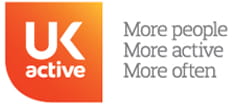The expression 50 is the new 40, 70 is the new 60 and so on is bandied around these days to show how people are generally living longer than their parents and grandparents. Certainly, the average life expectancy in the UK has risen dramatically in the past half a century and there are more and more people reaching their 90s and even 100. In fact, there are now 13,350 centenarians in the UK, a 73 per cent increase in the past decade.
Fitness trends
What we have seen in the health and fitness industry is a rise in the number of people in their 50s, 60, 70s and even older coming to the gym or using the sports centre for activities. No longer do we see people hitting their 40s and thinking “that’s it, I’m going to take it easy for the rest of my life.” No, the silver generation are playing football, they are regular, fiercely competitive squash addicts, they run for hours on the treadmill and they energetically lead the way in the spinning classes.
Taking up the challenge
If you glance out of the window of Kelsey Kerridge gym, you will see people in their 60s and 70s jogging on Parkers Piece, while the ever-popular cycling sportives, such as London to Cambridge or Cambridge to Norwich, a fair amount of the competitors will be aged 50 plus.
And this all makes sense. The old adage “use it or lose it” applies to muscles, bone strength and cardiovascular fitness. Once we hit 40, we begin to suffer a decrease in muscle strength and bone density. This is why, as we get older, we break bones more easily. By exercising regularly, particularly doing weight bearing exercises, then the loss of muscle mass can be slowed. At Kelsey Kerridge we run an exercise class specifically aimed at the over 50s to help people understand how to maintain good health and fitness.
Fitness for a healthier life
There is also heaps of evidence showing that exercise will reduce the impact of chronic disease and illness. Exercise improves the immune system, keeps your heart healthy and helps reduce blood pressure. People who exercise regularly also have a lowered risk of several conditions such as Alzheimer’s disease, diabetes, obesity, heart disease, osteoporosis and certain cancers.
The other huge benefit of regular exercise is it helps you maintain mobility and flexibility. By taking part in exercise, you will maintain or improve your posture, strength, flexibility and this will help maintain good balance and coordination. In turn this reduces the risks of falls and bone breaks.
Taking precautionary measures
As with anyone doing physical activity, there are some cautionary words.
- If you haven’t done much strenuous activity for a while, then do seek medical advice before embarking on a new fitness programme. If you have any pre-existing conditions, then ask what exercise is recommended for you.
- Start slow. There is no limit to what you can achieve, but don’t throw yourself into a new activity too fast, you will merely end up injured or ill. Build up your programme little by little, fitness professionals will advise you on an appropriate fitness schedule.
- Set yourself short-term goals. This will help you stay motivated. If you are a beginner runner and you say you want to run a marathon in six months time, the chances are you will not attain that goal. If you aim to compete in a five kilometre park run in a month, that is far more attainable and you will feel great when you achieve that goal.
Remember: Age is no barrier.












